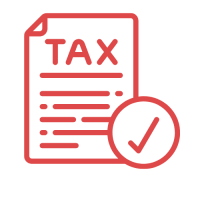Starting a business can be an exciting and rewarding experience, but it’s important to understand the financial costs associated with launching your business. Knowing what start-up costs you’ll face before you get started is key to helping your business succeed. This blog will give you a better understanding of the different types of expenses associated with starting a business and provide tips to help you save money while getting started.
Overview of Common Start-up Costs
Starting a business often requires more than just having a great idea — you’ll need to pay for equipment, supplies, and other costs associated with launching your business. It’s important to calculate how much money you need at the beginning so that you don’t find yourself in an uncomfortable financial situation later on down the line. Here are some of the most common start-up costs:
• Equipment: You may need to purchase or rent equipment such as computers, phones, furniture, and tools in order to operate your business.
• Licensing & permits: Depending on where you live and the type of business you are starting, there may be certain permits or licenses that you need to obtain in order to operate legally.
• Insurance: It is highly recommended that you get insurance for your business, as it will protect you from potential losses due to accidents, lawsuits, and other unforeseen circumstances.
• Supplies: Depending on the nature of your business, you may need to purchase supplies such as office supplies, packaging materials, inventory items and more.
• Advertising & marketing: You’ll likely have some upfront costs associated with getting the word out about your business. This could include website design fees, advertising costs, social media campaigns and more.
• Professional services: As a business owner, you may require assistance from professionals such as lawyers or accountants when setting up or running your business.
• Location: If you rent a space for your business, you’ll need to factor in the cost of rent, utilities, and other related expenses.
These are just some of the common start-up costs that you may incur when launching your business — it’s important to do your research so that you understand all of the associated costs and can plan accordingly.
Calculate business startup costs
Before launching your business, it is essential to calculate startup costs and make sure that you have enough funding available to cover them. Research expenses in advance can help you get a better idea of what kind of equipment, services, licensing fees, and other expenses are necessary for a successful launch.
Additionally, using a start-up costs calculator can help you determine how much capital you need and if you have enough money to cover your estimated costs. Calculating startup costs accurately is key in ensuring that your business is prepared to handle any unexpected expenses that may arise along the way. With careful research and a start-up cost calculator, you can ensure you have the funds you need to succeed.
Startup Costs – How To Keep Track of Them
Having meticulous accounting is essential for any small business startup. Good accounting software can help business owners prepare financial statements, monitor cash flow, and save time and money during tax season. These tools provide detailed reports that give insight into the financial health of a business, allowing owners to make informed decisions about their operations.
Additionally, accounting apps can also generate invoices, track payments, and create reports for business taxes. The use of accounting software is a great way to ensure accuracy and efficiency in managing finances. It also helps businesses stay organised and compliant with government regulations. Investing in the right accounting software can be an invaluable asset to any business looking to succeed and thrive. We highly recommend Xero.
Startup Funding
When starting a business, it is important to determine how much revenue your startup will need to cover the estimated costs of launching and running the business. This can be done by researching and calculating all of the expected costs, such as equipment, licensing fees, insurance premiums, advertising & marketing expenses, professional services fees, and more.
After totalling these estimated costs, you can then calculate the minimum amount of revenue that your business needs to stay afloat. This calculation will help inform budgeting decisions and ensure that your startup has the funds it needs to keep operating. Knowing exactly how much money is required to cover all start-up costs is key for any successful business launch.
One Off Costs
When starting a new business, initial costs can be surprisingly high. These one off expenses include one time costs such as setting up legal entities, registering with the appropriate authorities, obtaining licenses and permits, purchasing or renting equipment and supplies, paying for professional services such as legal advice or accounting, and making necessary investments to cover advertising or marketing expenses.
Additionally, you may need to pay for cash flow in order to keep the business running until it starts generating revenue. It is important to plan and ensure that you have enough funding for these one time expenses so that you don’t find yourself in a difficult situation later on down the line.
Small Business Marketing Costs
Marketing costs are an important part of any business startup costs and should not be overlooked. Investing in marketing can help you to get the word out about your business, attract customers, and increase sales. There are many different types of marketing activities that you can pursue, including website design fees, advertising costs, social media campaigns, and more.
Establishing a marketing budget at the beginning of your business will help ensure that you have enough resources to reach your target audience and maximise your potential for success. New Business Owners may be tempted to skimp on marketing in their business startup costs in order to save money, investing in these activities can pay off significantly in the long run.
Taking the time to ensure that you have enough money to cover startup expenses, such as marketing in your business budget, will help ensure that your business gets off the ground on a solid foundation.
Startup expenses depending on the type.
The startup expenses for different business types can vary significantly. For example, an online business type may need to invest in web hosting and domain services, while brick and mortar establishments require rental or purchase costs for a physical office space.
Brick and mortar businesses also often have higher fixed costs due to the need for additional equipment such as office furniture and fixtures, while online businesses have no such requirements.
It is important to consider the different startup expenses of all types of businesses before deciding which type of business model will work best for you. Understanding these differences can save you time, money and stress in the long run.
Ways to Save Money on Start-up Costs
Starting a new business doesn’t have to break the bank — there are plenty of ways to save money while getting started. Here are a few tips for reducing your start-up costs:
• Research potential vendors and suppliers to get the best deal on equipment, insurance, supplies, and more.
• If you’re renting a space for your business, try negotiating a lower rent or look for spaces in less expensive locations.
• Get creative with your advertising and marketing — there are plenty of inexpensive (or even free!) ways to get the word out about your business.
• Consider getting help from volunteers or interns who can assist with tasks such as web design or administrative duties.
• Take advantage of any government grants or tax incentives available to small businesses in your area.
Tips for Financing Your Business
In addition to reducing start-up costs, you may also need to secure outside financing in order to get your business off the ground. Here are a few tips for obtaining the necessary funds:
• Research different types of loans and other funding options available to small businesses.
• Prepare a detailed business plan that outlines your goals and projections — this will help potential lenders understand how their investment will be used.
• Consider seeking out investors or crowdfunding campaigns if traditional financing isn’t an option. A business plan will help attract investors.
• Look into government grants or tax incentives for small businesses in your area.
Funding your small business start up costs
When it comes to funding your business, there are several options available.
Debt Financing / Business Loan
Borrowing costs from traditional lenders such as banks or credit unions may be the most popular choice for many businesses. However, you should keep in mind that you will have to pay back the business loan with interest payments over some time.
Equity Financing / Venture Capital
Equity financing, where investors provide money in exchange for a share of profits, is another option if you don’t want to take on debt.
Government Grants
Finally, government grants and tax incentives can also help reduce the cost of starting up your business. No matter which route you choose, it’s important to do adequate research and plan to make an informed decision about how best to finance your business.
Ongoing Costs
It’s important to remember that the initial start-up costs will not be the only expenses associated with keeping your business running. After you have covered the costs of setting up shop, there will be ongoing costs such as rent or mortgage payments, employee salaries, inventory purchases and more.
It is essential to plan and factor these costs into your budget to ensure that you stay on top of your financial obligations and don’t find yourself short of cash at a critical time. Keep in mind that while trying to save money initially may seem like a great idea, it might leave you unprepared for future expenses down the line. Planning and understanding all of your potential costs are key to long-term success.
Conclusion
Starting a new business is an exciting (and sometimes overwhelming!) endeavour — but with careful planning, research, and budgeting, you can ensure that you have the necessary funds to get your business off the ground. Be sure to consider all of the common start-up costs, take advantage of ways to save money on these expenses, and explore different financing options in order to secure the necessary funds. With some hard work and creativity, you can make your business dreams a reality! Good luck!
Let’s work together
If you need help managing your start-up costs and navigating the financing landscape, don’t hesitate to contact us. He has years of experience helping entrepreneurs get their businesses off the ground, and he can provide valuable advice on ensuring you have enough funding for a successful launch. Contact us today for more information!
FAQ
Q: What kind of permits or licenses do I need to get?
A: This will depend on the type of business you are starting and where you are located. It is best to contact your local / state government agency or who you have professional membership with for more information.
Q: How can I save money on start-up costs?
A: There are a few ways to save money when launching a business, such as researching potential vendors, negotiating lower rent, getting creative with your advertising and marketing efforts, taking advantage of volunteers or interns, and looking into government grants and tax incentives in your area.
Q: How can I finance my business?
A: You may need to secure outside financing in order to get your business off the ground. Research different types of loans and other funding options available to small businesses, prepare a detailed business plan, seek out investors or crowdfunding campaigns, and explore government grants or tax incentives in your area.


















